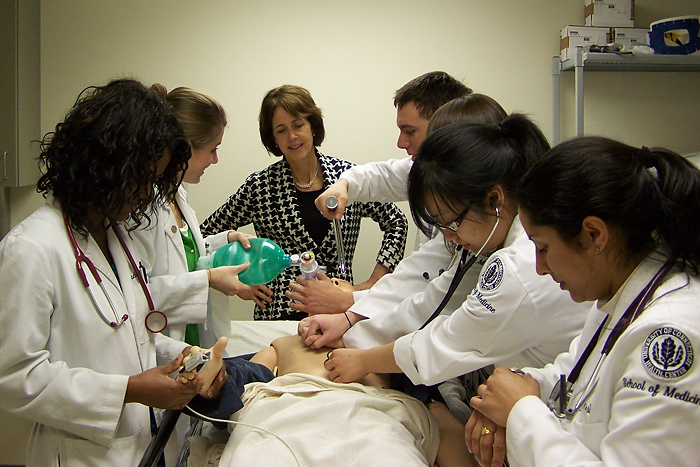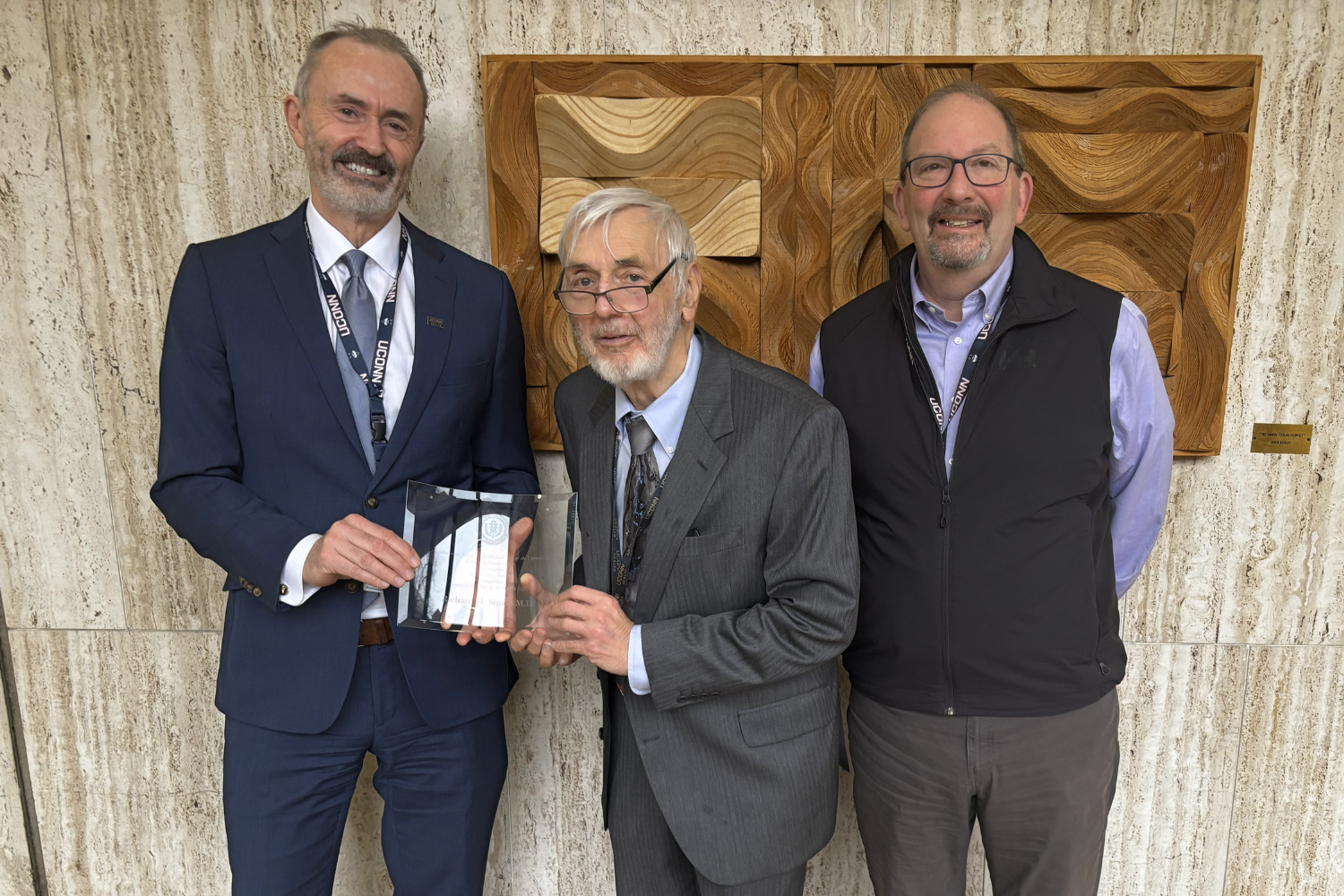
Communicating effectively with patients is an important requirement for being a successful doctor and UConn medical students have shown they’re ahead of their peers in this skill set.
Results from the Clinical Skills board exams show that UConn medical students aced the test, with 100 percent passing with scores well above the mean in all areas. The students are judged on such parameters as their questioning skills, information-sharing skills, and their professional manner and rapport. Medical students take the clinical skills part of the boards during the first half of their fourth year.
“We prepare them by having them work in the clinical skills facility from the first month of medical school, and by having them see patients in physicians’ offices from their first semester on,” says Carol Pfeiffer, who helped develop UConn’s Clinical Skills Assessment Program more than 20 years ago. “There are several practice programs during the first two years, and a formal assessment during each of the four years. By identifying and helping students who have difficulty with clinical skills, we end up with above average performers.”
The Clinical Skills Assessment Program allows students to learn how to communicate with patients in situations that don’t require the use of actual patients. The Clinical Skills Laboratory is composed of 16 patient exam rooms fully equipped to simulate a true medical office experience.
The laboratory employs a number of fully-trained actors throughout the year. Students interact with these “patient instructors” as if it were a real interaction. After each encounter, students meet with the patient instructor and receive feedback on whether or not they asked the correct questions, performed the correct physical exam maneuvers, and how well they did on an interpersonal level.
Each patient room has a video camera and microphone, allowing for patient encounters to be uploaded to the Internet. This technology allows students to review their encounters, in order to evaluate themselves and improve their techniques.
The Clinical Skills Laboratory is also equipped with a simulation center. This center uses a “SimMan” high-tech mannequin to instruct students on diagnostic and management skills in a controlled setting. As a result, students gain the confidence to deal with life-threatening, high pressure situations before facing them in a real-life clinical setting.
“We really are proud of our program and even more proud of our students,” says Dr. Lynn Kosowicz, the program’s medical director. “Future patients will surely benefit from the many opportunities for practice and feedback that our Clinical Skills program provides for our learners.”
Follow the UConn Health Center on Facebook, Twitter and YouTube.


